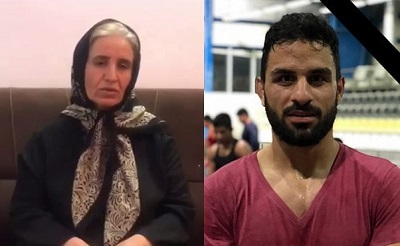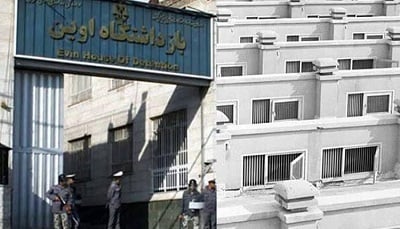Experts Urge Investigation into Iran’s 1988 Massacre
Published by Ali on May 7, 2021
International Liberty Association: In the summer of 1988, more than 30,000 political prisoners, mostly members and supporters of the Islamic republic of Iran main opposition group were executed based on a fatwa of Ruhollah Khomeini.
An organization called Justice for the Victims of the 1988 Massacre in Iran has released a new statement bearing the signatures of more than 150 experts on law and human rights, including 45 former United Nations officials.
The statement reiterates a longstanding call to action by critics of the Iranian regime and the main opposition group supporters. It emphasized the need for international pressure to disrupt a pattern of “systemic impunity” that has surrounded this issue for more than three decades.
“Many of the officials involved [in the killings] continue to hold positions of power,” the statement noted, referring in particular to Iran’s current Minister of Justice and the head of the national judiciary. This latter figure, Ebrahim Raisi, was appointed to his position by the regime’s Supreme Leader Ali Khamenei. In that capacity, he now oversees the regime’s response to protests and expressions of dissent, including public criticisms of the 1988 massacre.
Long subject to enforced silence, that issue gained a higher profile in Iranian society in 2016, following the leak of an audio recording from the time of the massacre, in which several of its leading perpetrators confirmed some of the most shocking details, such as the inclusion of teenagers and pregnant women among the victims. This prompted then-Justice Minister Mostafa Pourmohammadi to publicly defend his role in the 1988 “death commissions” by saying that he was following “God’s command” by systematically executing members of the opposition in prison.
To Stop Executions in Iran permanently, world should hold Iran to Account for 1988 Massacre.
The Khomeini’s fatwa which declared the Iran opponents to be guilty of “enmity against God” and thus subject to summary execution. The death commissions were established in prisons throughout the country in response to this religious edict, and within the space of several months, they were responsible for an estimated 30,000 killings.
ILA: The 1988 massacre of political prisoners was in the introduction of a resolution to the United States House of Representatives which gives major emphasis to the 1988 massacre while cataloguing the Iranian authorities crimes and “expressing support for the Iranian people’s desire for a democratic, secular, and nonnuclear Republic of Iran.”
The resolution also makes reference to a letter sent to Iranian authorities by seven UN human rights experts in September 2020, which was embraced by Amnesty International as a “momentous breakthrough” for the international community’s relationship with Iran over its human rights record.
While the letter began by urging the Islamic Republic of Iran to conduct its own investigation and to release available documentation regarding the killings, it ultimately declared that in absence of a serious response from Tehran, the responsibility for that investigation would fall to the UN and leading member states.



